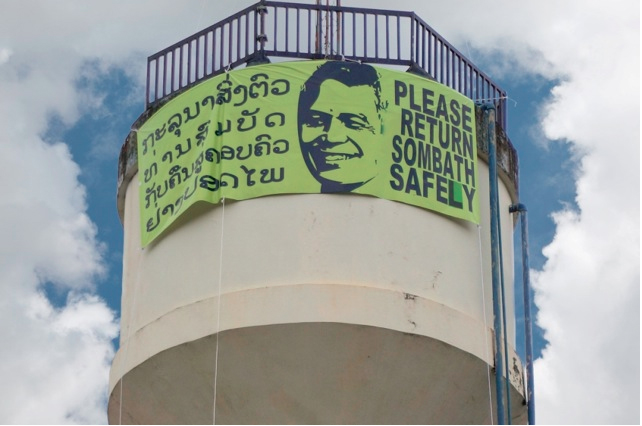UN Special Rapporteur on Human Rights Defenders
It was with a mix of profound sadness and deep admiration that I read Shui Meng Ng’s recently published biography of her husband, Silencing of a Laotian Son: The Life, Work and Enforced Disappearance of Sombath Somphone. Sadness because this December will mark 10 years since Sombath was disappeared, 10 years since CCTV footage showed his jeep being stopped by police and his being bundled into a truck before it speeds away. As Shui Meng writes in the book, these were “the last images I have seen of Sombath since.”
Admiration because in all of that time Shui Meng Ng has never stopped pressing for answers, never stopped fighting to prevent Sombath from being forgotten about and never stopped believing that despite the huge power imbalance, she can hold the Laotian authorities to account. I invited Shui Meng to the Dublin Platform in 2013, ten months after Sombath’s disappearance, and the words she spoke then epitomise how she has lived the last decade:
Despite the concerns for safety of myself and my family, Sombath’s disappearance has taught me that silence is a form of defeat. I cannot accept such defeat and I cannot ignore such violations of my husband’s rights.
This type of courage, and commitment to do what is right, is apparent in great supply in the pages of Silencing of a Laotian Son which details Sombath’s journey from a childhood of poverty and hardship, a year of which was spent as a refugee on the Thai side of Laos border, to academic excellence in the USA.
Above all though what shines through is Sombath’s absolute dedication to improving the lives of his fellow Laotians. Following the Communist takeover of Laos in 1975, it would have been easy for him to settle and make his life in the US, where he was studying at the time, but he chose to return to Laos in the 1980s to try to introduce new farming and land management techniques that he had developed through his studies. Shui Meng remembers that when Sombath first arrived in the US, he was astounded by the abundance of food in American households, and “food security was one of the reasons why, later in life, Sombath chose to study agronomy. His aim was to find ways to reduce food insecurity for poor farming households in Laos.”
Sadly Sombath’s efforts were blocked at every turn by the Laotian government who were suspicious of him because he studied in the USA. Ironically, when he was in the USA, the FBI were interested in him because he wanted to go home to Communist Laos. This absurd situation is what happens when politics is placed above human rights. Sombath persevered and founded the first indigenous non-profit in Lao PDR providing training to rural communities to foster development on their own terms.
It is believed that Sombath was finally disappeared as a result of his involvement in the Asia-Europe People’s Forum in November 2012, a biennial conference to promote exchange between civil society in Asia and Europe. It was the first time that an international civil society event was held in Lao PDR, and during it Sombath spoke on the importance of government dialogue with civil society, and listened as fellow Laotians spoke out about illegal land seizures. Some of those who spoke out were reportedly threatened by officials and Sombath, unsurprisingly, wanted an investigation into those threats. He vanished a few weeks later.
My predecessors have written a number of times to the Laotian authorities on Sombath but only received repeated claims of ignorance about his fate. In February of last year I joined with the Working Group on Enforced or Involuntary Disappearances and two other Special Rapporteurs in writing once again to the Laotian government asking why no further updates on the investigation had been provided to Shui Meng or published since shortly after his disappearance. We also asked why the authorities had not met with Shui Meng since 2017, despite their assurances that they would regularly provide her with updates. The authorities have yet to respond.
In Sombath’s disappearance, Laos has lost one of its best. In writing this book, Shui Meng has ensured that Sombath can continue to serve as an inspiration to future generations of Laotians and to human rights defenders everywhere.







 Note: A video recording of this event is available
Note: A video recording of this event is available